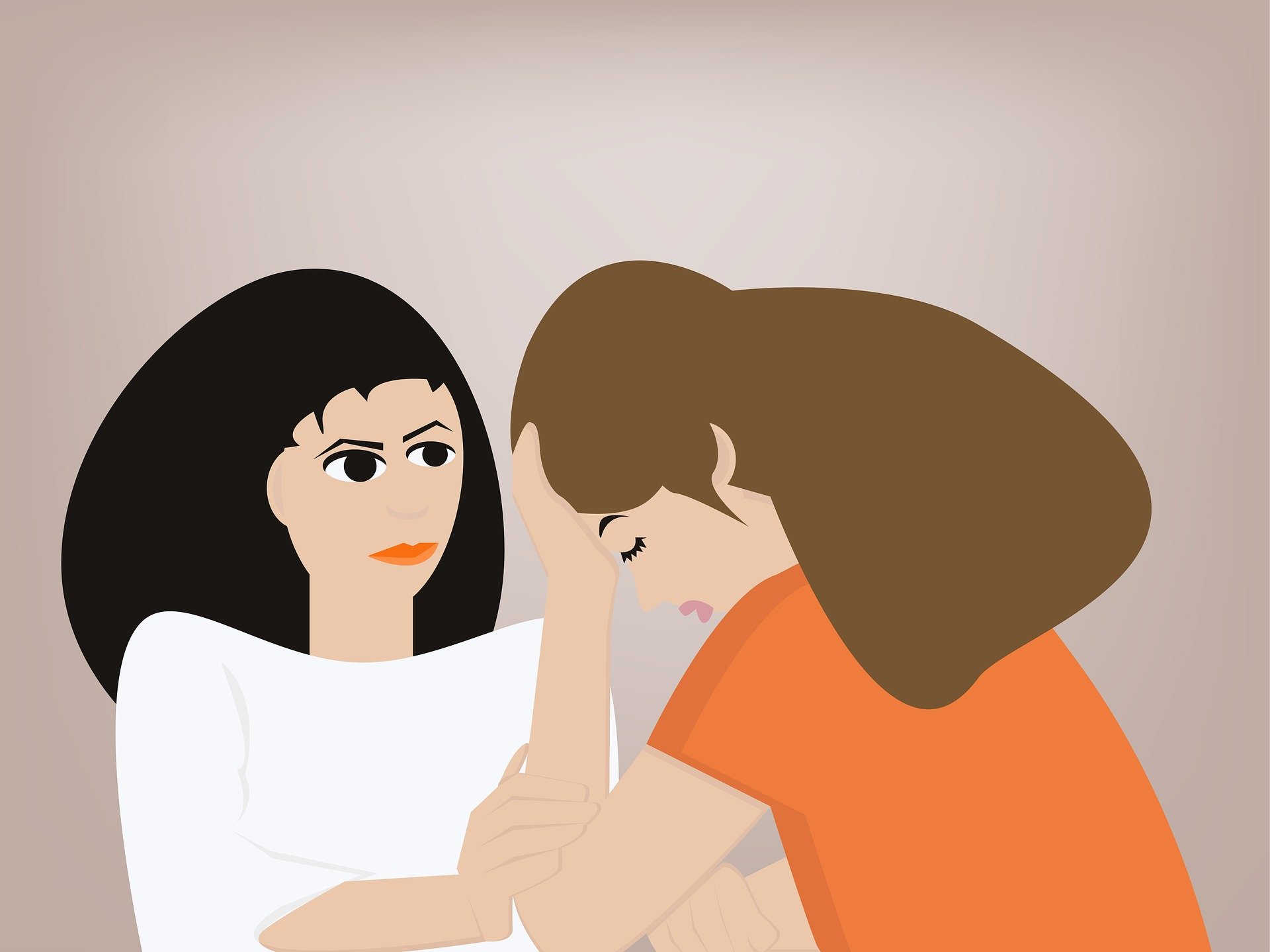Exemplar: Contrasting two therapies
 The following sample is a response to the question: Contrast one biological and one psychological treatment for one disorder. Contrast asks students to discuss differences between the two types of therapy.
The following sample is a response to the question: Contrast one biological and one psychological treatment for one disorder. Contrast asks students to discuss differences between the two types of therapy.
The sample response is an example of an exemplary response that should receive top marks. Comments about the essay are included below.
The highlighted areas of the essay demonstrate critical thinking.
Sample essay
| Essay content | Marker's comment |
When treating depression, there are two key forms of treatment. The first is biological – which involves drug treatments like SSRIs and tricyclic drugs. The other is psychological treatments, such as CBT. CBT is a therapy with the goal of cognitive restructuring - that is, changing one's outlook on life, self-schemas and irrational thinking patterns. Both treatments have their strengths and limitations in the treatment of Major Depression and it is thought that the optimum treatment is a combination of the two treatments. | The introduction is clearly focused on the demands of the question and identifies the two types of therapy (drug and CBT) that will be contrasted. |
One key difference between the two treatments is the assumptions on which the treatments are based. Drug treatments are based on the assumption that neurochemical imbalances are the cause of depressive symptoms. For example, SSRIs are based on the assumption that MDD is the result of low levels of serotonin. The goal of drug treatments is to improve one’s mental health by addressing the symptoms. This is a reductionist approach, arguing that mental illness is the result of biological imbalances. Biological approaches believe that they are addressing the cause of the disorder. | A good topic sentence. The assumptions of drug therapy are correctly outlined and explained. |
Psychological treatments argue that there are complex patterns of thinking and behavior that are responsible for MDD. This is a more holistic approach to the individual with a focus more on teaching clients coping strategies. However, negative schema and irrational thinking strategies may actually be symptoms of depression, rather than a cause of depression. Unlike drug therapy, CBT has been criticized for focusing on a symptom of the disorder, rather than addressing its cause. | The assumptions of CBT are outlined. There is a clear contrast with drug therapy. |
Another key difference is the level of effectiveness of the different treatments. Although drug treatments are often helpful in reducing some symptoms of depression, the effectiveness of many drug treatments is questioned. Andrews et al (2011) conducted a meta-analysis of studies on relapse rates and found that patients who receive only psychological treatment have a 25% risk of relapse, compared to a 42% risk of relapse if they only were on medication. Kirsch et al (2008) found no significant difference between placebo and SSRIs, except in the case of the most severely depressed patients. | Research is used effectively to discuss the effectiveness of the treatment. |
Research on the effectiveness of CBT, for example, Riggs et al (2007) found that treatment with CBT and drug treatment resulted in improvement for 76% of the sample; CBT with a placebo showed an improvement of 67%. It appears that CBT in combination with drug therapy has a higher rate of effectiveness than drug therapy alone. | Research is used effectively and proposed a contrast between the two treatments. |
However, when looking at the difference in the effectiveness of CBT and drug therapy, one has to be careful with interpreting the findings. When studying people with depression, it is difficult to know if everyone in the sample has the same origin of depression. In many studies, drug therapy is most effective with patients that have the most severe symptoms. In addition, the effectiveness of a treatment is often determined by self-reported data. Especially because of the personal relationship between a therapist and a client, such reporting may be open to demand characteristics. Some research, such as the study by Elkin (1989), has found that there is no significant difference between CBT and drug treatment. | This paragraph discusses the contrasting findings on effectiveness and why it is important to be careful when drawing a conclusion based on the research. |
Each type of treatment has different limitations. While drug therapy has the problem of discontinuation syndrome – that is, withdrawal symptoms, psychological treatments do not. In addition, the side effects of drugs are a problem that CBT does not have. On the other hand, CBT can take a long time to start showing improvement. CBT works with the goal of addressing coping strategies and ways of thinking of the client. In this way, CBT may be focusing more on the symptom of the disorder rather than the cause, especially if the cause is biological. CBT may also be more open to cultural differences than drug treatment. If the source of depression is truly biological, then an individual’s culture should not play a key role in the effectiveness of such treatment. However, in CBT the therapist is deciding whether ways of thinking are “irrational.” In addition, CBT promotes autonomy and self-reliance, which may not be valued in other cultures. | The different limitations or disadvantages of each type of research are contrasted. |
The differences between the two treatments are significant; however, it may be the case that this is why they work so well when used together – with the biological treatment addressing the potential cause of the disorder and CBT addressing coping strategies and helping patients to rebuild a sense of confidence and strategies for avoiding future relapse. | There is a simple conclusion based on the evidence. |
| Words: 730 |

 IB Docs (2) Team
IB Docs (2) Team
